CHARLIE MUSSELWHITE
I Ain’t Lyin’
Henrietta – No #
Charlie Musselwhite learned from the masters—first in Memphis, then in Chicago after he moved north in the early ’60s—and their influences are palpable throughout this set. Especially evident, at least to my ears, is the spirit of Big Walter Horton: Musselwhite’s raucous harp tone recalls Horton’s on Easy, his famous 1953 Sun recording with Jimmy DeBerry, as well as his epic solo on Jimmy Rogers’ Walking By Myself the following year (which Musselwhite quotes directly in Blues, Why Do You Worry Me?); his warbles, swoops and deep-pocket turnarounds also sound directly adapted from the great man’s lickbook. Musselwhite personalizes everything, though—his overall approach is less subtle than Walter’s, his melodic conceits are his own, and his leather-lunged power is that of a man who has spent most of his professional career alongside musicians who owe as much of their sound to rock as to blues.
Although he’s known primarily for his blues stylings, Musselwhite spent almost as much time frequenting C&W honky-tonks in Memphis as he did sitting at the feet of grizzled Beale Street blues veterans; something of the hooch-fueled abandon of those joints is reflected in My Kinda Gal, set to a chooglinʼ hillbilly-boogie beat and toughened by some Dixie-fried picking from guitarist Matt Stubbs. Musselwhite shows his more introspective side on Cristo Redentor, an impressionistic mediation that LB readers may remember from Harvey Mandel’s 1968 recording, but which was actually written in 1961 by jazz pianist Duke Pearson and recorded by trumpeter Donald Byrd in 1963.
Mostly, though, this is a hard-rocking blues party. Musselwhite has never really been a deep-blues vocalist, but then he doesn’t pretend to be, so his singing sounds as unforced and straight-from-the-heart as his harpwork. Now that he’s attained “grizzled veteran” status himself, Charlie Musselwhite can be assured of his place in the pantheon of harmonica greats, including the masters from whom he originally learned his craft.
—David Whiteis
TRUDY LYNN
Everything Comes With a Price
Connor Ray Music – CRM 2418
Collaborating with the same production team that helped create her acclaimed 2013 album Royal Oaks Blues Café, Trudy Lynn has crafted yet another first-rate disc with Everything Comes With a Price. Like its immediate predecessor, this new release spotlights Lynn’s agile voice and strong-woman persona against a background of expert and somewhat sparse supporting instrumentation. The set list mixes four new songs written by Lynn with six resurrected (and reinvented) numbers originally articulated by blues women of earlier eras. The result is a superb showcase for Lynn’s talents and her generation-bridging artistic sensibility.
Some of the core players on the previous Lynn album resurface here, particularly the subtle but strong Steve Krase on harmonica and the exquisite Randy Wall on keyboards, along with producer Rock Romano (who engineered, mixed and mastered the disc at his Red Shack studios) on bass. Three guest guitarists provide plenty of six-string chops to season the fundamental sonic stew. Most prominently, the Houston-based phenomenon known as the Mighty Orq graces all ten tracks (taking lead solos on four), while the south Louisiana stalwart Paul “Lil’ Buck” Sinegal contributes lead or rhythm licks on seven. The fine fretwork of James Henry (a regular in Krase’s own band) appears on two.
The ten songs that comprise the album attest to Lynn’s good taste in choosing material—from both her own compositions and from those passed down by some of her older sisters, so to speak, in the blues world. The latter group includes the opener, I’m Gonna Latch On by Marie Adams, the unapologetically sensual My Alley Boogie by Lucille Bogan, the classic Messin’ Around with the Blues by Alberta Adams, the rollicking Let My Daddy Do That by Hattie Hart, the eponymous Ella Johnson’s Blues by Ella Johnson and for the closer, an uplifting gospel number called Living Humble by Clara Smith. While Lynn reimagines each of these vintage songs (for instance, incorporating a silky smooth groove worthy of Little Feat into the Bogan number), she also infuses them with her own distinctive personality. By the end of the disc they all seem to belong, solely and soulfully, to her.
Lynn’s originals, including the title cut, effectively complement the chosen cover tunes. On Fat Daddy the singer dramatically delivers a brief spoken introduction while the band vamps; then it all comes together brilliantly in a brazen musical celebration of the titular male’s redeeming attributes. Another standout, Yesterday I Was Lonely, is an introspective slow blues in which she murmurs and moans her lyrics accompanied mainly by minimalist piano, with a few atmospheric accents on guitar and harmonica.
Apart from the seamless interplay of old and new compositions, another unifying principle of Everything Comes With a Price is Lynn’s compellingly self-confident personality, which combines an unmistakably shrewd intelligence with a simple down-home earthiness. She fully inhabits the world of each song as its natural protagonist. There’s no sense of affectation or role-playing as she exercises her wit and embraces the greasy funk of life. She’s the real deal, and this highly enjoyable album vividly establishes that fact once again.
—Roger Wood
ADOLPHUS BELL
Mississippi Rubberleg
Music Maker – MMCD175
Mississippi Rubberleg is a posthumous release of Birmingham, Alabama’s interminable “one man band,ˮ Adolphus Bell. The disc is a super-solid collection of well-interpreted ’60s soul and soul-blues covers with a couple of Bell originals, all “recorded in one take with only Adolphus holding ‘Pawn Shop’ sitting behind a bass drum and high-hat and a harmonica on a rack.” The album opens with the ebullient machine-gun attack of Otis Redding’s Love Man and winds its way through a who’s who of Bell influences including three gut-wrenching Bobby “Blue” Bland standards, You’ve Got to Hurt Before You Heal, I’m Not Ashamed and Lead Me On, as well a joyful version of Bobby Lewis’ Tossin’ and Turnin’.
Bell (who was featured on the cover of LB #203: Birmingham Blues) also deftly makes classics by Sam Cooke, Curtis Mayfield/Jerry Butler and Bill Withers all his own creations. In addition to his original song Plain to See, the highlight of the album is the “laughing to keep from cryingˮ story of his guitar, Pawn Shop, recorded live in Buenos Aires in 2006. The song is the closest to a straight-ahead, simple blues as this collection gets, and it offers a biographic snapshot into Bell’s journey from obscure street musician to international star.
The collection’s 11 songs move quickly as the entire album clocks in at 27 minutes, which is okay because you will want to hit the repeat button once or twice. Bell’s personality and unique sound will leave you wanting more, and these songs sound as fresh and fun on subsequent listens as the first time you hear the CD.
—Mark Coltrain
TOMMY CASTRO AND THE PAINKILLERS
Method to My Madness
Alligator – ALCD 4967
Tommy Castro is no overnight sensation. It’s been a long road from gigging in the Bay Area to national recognition and a deal with Alligator Records, and the mileage can be heard in every note of Castro’s music. Phrases like “seasoned” and “road tested” barely do justice to Castro’s musical chops and everyman persona.
On Method to My Madness, Castro and his spandex-tight backing band cover a wide range of musical ground without ever losing their solid footing in the blues.
The catchy hooks and uplifting lyrics of Common Ground recall the Staple Singers. The rhythm section is impeccable on this track, while keyboardist Mike Emerson acts as the perfect musical foil for Castro. The title track and I’m Qualified show Castro’s affinity for well-crafted blues-rock tunes built on terse, rhythmic guitar riffs. His playing on these tracks sounds strongly influenced by Jimmie Vaughan’s work with the Fabulous Thunderbirds. On the soulful ballad Died and Gone to Heaven, the roadhouse grit in Castro’s voice could give Delbert McClinton a run for his money. Emerson’s soul-drenched organ riffs add just the right amount of Memphis grease.
While carefully crafted tunes and tight grooves are a key part of Castro’s sound, Lose Lose gives him the chance to stretch out and remind listeners that he’s a bluesman at heart. Like Buddy Guy, Castro crams all the emotion he can into every word he sings. When he digs into a solo, his biting tone and dramatic string bends reveal an obvious respect for Albert Collins. While Castro doesn’t quite have the late Texas guitar slinger’s power and dexterity (few guitarists do) the passion is there. Method to My Madness is another solid outing from a seasoned veteran.
—Jon Kleinman
SAM BUTLER
Raise Your Hands!
Severn Records – CD 0066
Raise Your Hands! is the solo debut CD by singer/guitarist Sam Butler, who spent many years backing up the Blind Boys of Alabama. Butler’s gospel roots, however, run deeper than that gig. From the age of four, he accompanied his guitarist father, Samuel Butler Sr., on the road with the Blind Boys of Mississippi. Clearly aimed at crossover success with the roots rock audience, this recording has Butler showcasing his gruff, soulful vocals and awesome guitar chops on a set of 12 “bluesy spirituals penned by secular artists.”
The material is drawn from quite a range of musicians, including Bruce Springsteen, Van Morrison, U2 and Brian Eno, Johnny Cash, Tom Waits, Lee Ann Womack, Eric Clapton, Eliza Gilkyson and Curtis Mayfield, among others. Joined by a backing ensemble that includes pedal steel guitarist Roosevelt Collier, drummer Marco Giovino and bassist Viktor Krauss, this stripped down setting allows for maximum exposure for what Butler can do as a singer and guitarist, and it is impressive what he achieves given the disparate stylistic approaches he must cover.
It would be nice to be able to say that Butler makes all these “spirituals” his own, but that is not the case. Some work is decidedly better than others, and that may be a function of the fact that since this is his first solo recording, it is unclear what is Sam Butler’s sound and style. The U2 / Brian Eno collaboration, Magnificent, sounds like a cover of a U2 song; the Lee Ann Womack–associated All His Saints (written by Mindy Smith) sounds like a cover of a contemporary Nashville hit. Butler is much more successful with tunes that have stronger ties to traditional gospel and blues forms. This is evident on Waits’ Gospel Train, with its bluesy growling lyrical delivery and slashing interplay between Butler’s jagged edged lead guitar and Collier’s searing pedal steel. Morrison’s Full Force Gale, a soaring inspirational ballad, allows Butler to gently caress the lyrics and punctuate his vocals with some shimmering single note guitar runs while Collier’s swooping pedal style functions like a backup choir. Similarly, Butler does a beautiful job rendering Gilkyson’s Sanctuary as a meditative prayer, contrasting his warm vocal with a fiery guitar solo. The standout track is Mayfield’s Impressions-era Wherever You Leadeth, a tune that clearly can be traced to the composer’s gospel roots, familiar turf for Butler’s poignant delivery.
Raise Your Hands! is a promising debut for Sam Butler; hopefully next time he will be able to pursue his own muse. As a bluesy, gospel guitar man and soulful singer, Butler could very well pick up the baton and carry on the legacy of the late Pop Staples, who masterfully integrated the sacred and the secular into a distinctive musical vision.
—Robert H. Cataliotti
EUGENE HIDEAWAY BRIDGES
Hold On a Little Bit Longer
Armadillo – 00036
Though many of the blues elders have passed on, there are still a few musicians around who keep the true flame burning. Eugene “Hideaway” Bridges, at 51, is one of them. Bridges came by the music “organically” from the Bridges Brothers quartet, his father Othineil “Hideaway Slim” Bridges, who was a blues guitarist and singer, juke joint operator and later preacher and his aunt Annie Mae Bullock (a.k.a. Tina Turner). It doesn’t get much more “real” than that. He has taken all his precursors and made a superb synthesis of them that is all blues for today. This is well-planned material that is recorded well.
The album was recorded in several locations, but this isn’t an example of musicians just phoning in their parts. While the whole cast was never in the studio together, it all sounds like they were and that’s high praise. The music, rather than technology, rules. There is high energy and excitement throughout the disc as proof.
Typically with Bridges, the tunes are mostly original pieces (save for Lost and Lookin’ and Along the Navajo Trail) that are simultaneously within the tradition and expanding its boundaries. There are 12-bar blues songs (V-8 Ford, Love You in Every Way), “soul” ballad songs (One More Time, I Can’t Stand It), even rock ’n’ roll songs (the title tune) and swing tunes (Along the Navajo Trail, Yesterday Today Tomorrow), but they are all good—57 minutes of fine music.
Much like a younger Travis Haddix, Eugene Bridges deserves to be better known. I Can’t Stand It deals with this problem beautifully. He can play, he can sing, he can write, he can arrange—what’s not to like? He is the international version of an itinerant bluesman who should be reaping deserved positive jingo at home. This is one of the best albums to cross my desk this year with good tunes, good musicians and good performances throughout.
—Peter B. Lowery
ZAKIYA HOOKER
In the Mood
Boogie With The Hook Records – No #
Pursuing a career as a blues singer and having a father like the iconic John Lee Hooker must be intimidating, but for Zakiya Hooker working in the shadow of her father’s legacy may not be as daunting because her approach and style is so distinct from the acoustic Delta and postwar electric, urban blues he personified. In The Mood, Zakiya Hooker’s fourth CD as a leader, shows that she has positioned herself as versatile singer who excels in the soul blues style, who can also handle funk, jazz and country blues.
Produced by her husband Ollan Christopher (Chris James), In the Mood was largely recorded in Argentina with local musicians whose grooves and solos provide an authentic and soulful framework for Hooker’s sultry voice that evokes a range of emotions from down home grit to tender poignancy. Another Kind of Blues is a soul blues that recalls the Malaco classics of Z.Z. Hill and Denise LaSalle. Other tunes in this vein include the rousing, horn-driven title track and the swaggering bravado of Receipt to Sing the Blues. The bouncy soul of Look Me Up, with its strummed acoustic guitar and subdued chorus of background singers, brings the Staples Singers’ work on Stax Records to mind. Hooker lays down some hardcore funk with a nasty girl attitude on Let’s Do Something. In direct contrast, the ballad Drown in Your Love recalls Nancy Wilson’s elegant torch song stylings. A couple of tracks, the funky Art of Divorce and the mellow Protect Me From the Blues, find Hooker exploring the blues/jazz fusion territory that B.B. King pioneered with the Crusaders.
Hooker invokes her father’s legacy on two tracks: One Step Two with its the pulsing, slow grinding groove and wailing harmonica and especially on Hang On for a While, a foot-stomping, acoustic guitar / harmonica country blues showcase. She closes the set accompanied by acoustic guitar and strings on the tender, lullaby-like Sweet Baby J (John’s Song), a tribute to her late son. Zakiya Hooker is a late bloomer; she did not launch her blues career until her mid-thirties when she joined her father on stage in 1991. With In the Mood she makes it clear that she has come into her own on the contemporary blues scene.
— Robert H. Cataliotti
LUTHER “BADMAN” KEITH
Bluesmen Are Heroes
BMB – No #
Luther Keith was already an esteemed journalist at The Detroit News when, inspired by Luther Allison, he picked up the guitar in the early ’80s and reinvented himself as a bluesman. (He has remained active in both professions—
in 1995, he became the youngest person ever to be inducted into the Michigan Journalism Hall of Fame). There are definite echoes of Allison’s sound in Keith’s playing, but this set’s high-strutting rhythms, rich horn arrangements and overall feel of celebratory abandon (to say nothing of pianist Jim David’s Longhair-like curlicues) also invoke the spirit of New Orleans, or maybe Memphis at its backstreet funkiest.
For all its reputation as a postwar blues bastion, Detroit in its Hastings Street heyday was at least as much a jazz town as a blues town—a legacy represented here in the brassy horn charts and the leavening tinge of sophistication that inform even the most exuberant moments. (There are also, however, plenty of rootsier references, most notably on the deep-Delta Mojo Son and the after-hours juke joint lament Baby Walks Out. Perhaps revealingly, though, these outings seem rather forced and self-conscious, lacking the breezy assurance that’s evident elsewhere.) As a lyricist, Keith seems enamored of extolling the music he plays (six out of the disc’s 13 tracks—seven, if you include the closing instrumental Blue-B-Que—include the word “Blues” or “Bluesman” in their titles), and his paeans to love’s joys and vicissitudes tend toward the cliché. In addition, his vocals sometimes sound mannered, as if he’s still mastering the art of conveying emotion without emoting. Nonetheless, the musical delights on offer make this disc well worth having—the regional/stylistic mix is imaginative; Keith’s own fretwork is deft and emotionally rich; the arrangements are unusually well-crafted and sophisticated for a guitar-oriented blues set of this nature; and the musicianship throughout is first-rate.
—David Whiteis
CHARLIE SAYLES
Charlie Sayles and the Blues Disciples Featuring Tony the Legend Fazio
Fetal Records – No #
A compelling harmonica player and vocalist, Charlie Sayles has performed everywhere from city streets to Carnegie Hall, yet he remains largely under the radar. His latest project, Charlie Sayles and the Blues Disciples, is a raw, intimate set of originals that should hopefully garner the Washington, D.C.–based artist wider notice.
The Blues Disciples consist of Sayles, guitarist/bassist Tony Fazio and drummer Greg Phillips; Andrew Garbutt contributes bass to three tracks. Sayles’ subterranean vocals oscillate between rough and smooth, and his harmonica work is keen and melodic. Most of the songs were written by Sayles, several of which—as their band name suggests—are concerned with spiritual matters. Set to a Hill Country–esque beat, These Things of Old is inspired by Psalm 78; Jesus Christ and These Chains are almost jazzy; and the slow blues New Day Coming is calm and assured.
A Vietnam War veteran, Sayles draws from his experiences overseas on the haunting Vietnam. It’s a deceptively peaceful track: “Birds in the sky, screeching on high / Who knows, tomorrow you could die,” Sayles croons as Fazio’s meandering guitar evokes a feeling of resignation. Later he shifts the song’s action to New York City, indicating the enemy could be anyone, anywhere: “He might look like me, he might look like you.”
Greenpeace is an environmentally conscious rocker, while the love song Arella praises a lady who makes food “taste just like I think it should.” On I Don’t Want to Die, Sayles and Fazio trade piercing licks back and forth; on Laughin and Grinnin, credited to both, Sayles blows quicksilver harp against Fazio and Phillips’ steady-rolling rhythm.
“Everybody’s got something to say,” Sayles states on the song of the same name; “we got to say it in our own special way.” He does just that on Charlie Sayles and the Blues Disciples, and it’s well worth lending an ear to.
—Melanie Young
DAVE WELD & THE IMPERIAL FLAMES
Slip Into a Dream
Delmark – DE 842
Guitarist Dave Weld honed his chops in Chicago’s West Side clubs, playing with Hound Dog Taylor and Howlin’ Wolf’s bands. He later studied with J.B. Hutto, formed the Blues Imperials with Hutto’s nephew Lil’ Ed Williams, and since 1988 has fronted his own group, the Imperial Flames. The Flames’ latest release, Slip Into a Dream, captures the potent blues-rockers at the height of their powers.
Bearing the influence of Taylor and Hutto, Weld’s torrid guitar playing steals the show, whether on the sultry title track, the full-throttle soul of Take Me Back or the loping Chicago blues of May Be Right, May Be Wrong and Tremble. Sweet Rockin’ Soul is just what its title suggests, while Dorothy Mae is a funk workout energized by Sax Gordon’s horns; the saxophonist adds piquant lines to Louise and Tremble as well. Bobby Rush’s clear, centered harmonica tone flits around Weld’s runaway-train licks on the sassy shuffle Looking for a Man and the chooglin 20% Alcohol.
Possessing a sweet, yet strong mezzo, Monica Myhre sings lead on Looking for a Man, Sweet Love (Dulce Amor), the wild boogie-woogie Louise and the slow-burning Walk on Down. She bids good riddance to an abusive lover on Too Bad, So Sad, as Greg Guy—Buddy’s son—shares guitar duties with Weld. Myhre’s plummy vocals blend well with Weld’s raspier ones, and their congenial harmonies are scattered across the record.
Packed with tight, lively musicianship, Dave Weld and the Imperial Flames’ Slip Into a Dream is an enticing set of contemporary Chicago-style blues.
—Melanie Young


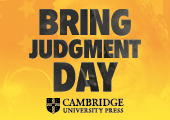




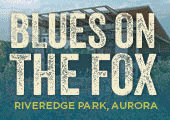


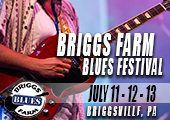
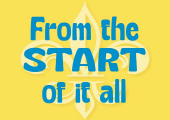






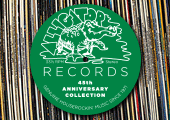
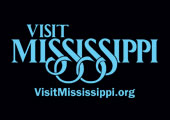
Thank you Melanie, your bright and insightful comments mean more than you could know!
We did put our hearts in this one, and had to fight many uphill battles, and at times it looked pretty tough!
Your review makes all that work worth it, because we spoke directly to someone thoughtful and able to see and feel what we feel, from years of living the music and loving the music, so we were talking to you, and those of your caliber, when we created and recorded the songs!
Thanks again, and if you need anything I am at 773 494 0283, dv_weld@yahoo.com